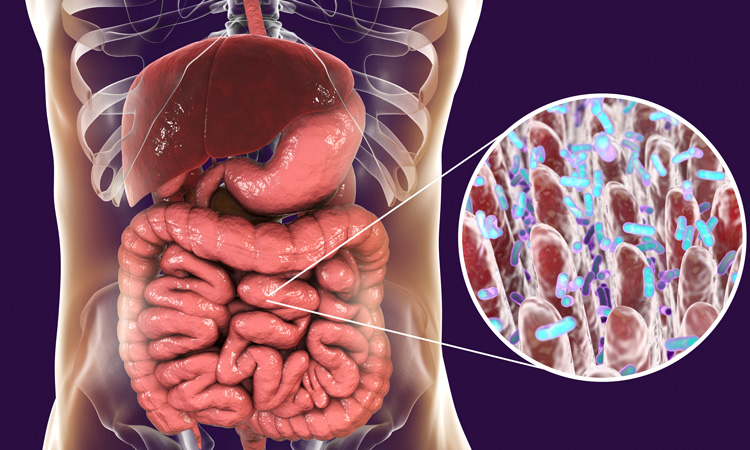Common foods can help ‘landscape’ the gut microbiome, research finds
- Like
- Digg
- Del
- Tumblr
- VKontakte
- Buffer
- Love This
- Odnoklassniki
- Meneame
- Blogger
- Amazon
- Yahoo Mail
- Gmail
- AOL
- Newsvine
- HackerNews
- Evernote
- MySpace
- Mail.ru
- Viadeo
- Line
- Comments
- Yummly
- SMS
- Viber
- Telegram
- Subscribe
- Skype
- Facebook Messenger
- Kakao
- LiveJournal
- Yammer
- Edgar
- Fintel
- Mix
- Instapaper
- Copy Link
Posted: 14 January 2020 | Sam Mehmet (New Food) | No comments yet
While studies have focused on increasing the abundance of therapeutic phages, this research is said to explore the reductive effect of commonly consumed foods, chemical additives and plant extracts on the growth and phage production capacity of common gut bacteria.


Researchers at San Diego State University (SDSU) have found a new way to harness food as medicine, which is said to have far reaching implications to control harmful microbes in our gut microbiome while balancing microbial diversity and fostering the growth of beneficial bacteria.
Foods we eat commonly affect our gut microbiota, and new research shows they do so by triggering the production of bacteriophage – viruses that infect and replicate inside bacteria. Compounds in these foods have an antimicrobial effect which causes the phage to replicate.
The researchers began by identifying which foods were antimicrobial, then analysed them before narrowing it down to a shortlist. When examining growth curves of bacteria, they observed that while bacteria multiply over time, eventually their numbers plateau. However, if phages are activated, then bacterial growth stops altogether, and their numbers drop dramatically until they are depleted.
Foods they tested that had antimicrobial effects include honey, liquorice, stevia, aspartame, hot sauce, herbs such as oregano, spices such as cinnamon and clove, rhubarbs, uva ursi (bear berry), and neem extract. Of these, honey, stevia, aspartame, neem and uva ursi had the most impact in triggering phage production.
“The microbiome is composed of hundreds of different bacteria and the phages they host,” said Lance Boling, an SDSU molecular biologist and research associate. “We could actually tackle certain conditions by adjusting the foods we consume, that will affect microbial diversity which in turn will influence health and diseases. We also found some foods acted as phage inhibitors and could be used to control pathogenic viruses,” Boling added.
“This shows we could sculpt the human gut microbiome with common dietary compounds,” said Forest Rohwer, an SDSU microbial ecologist. “The ability to kill specific bacteria, without affecting others, makes these compounds very interesting.”
Future applications
The reductive approach of the research is “akin to pulling weeds from a garden so that more desirable plants have room to grow,” Boling explained, hence the term ‘landscaping’.
Proper understanding and utilisation of these food compounds could aid in the treatment or prevention of conditions associated with gut imbalances, and promote overall health, the researchers argued.
“We are excited about finding more prophage inducers and determining the molecular mechanisms by which they work,” Rohwer said. “There are probably thousands of compounds that would be useful for eliminating unwanted bacteria.”
The researchers recommend that foods found to be prophage inducers should be studied further to elucidate their molecular mechanisms. While the importance of phages and the fact that they are the most prolific biological entity in the biosphere is well-established, little is understood about the triggers that cause bacteria to produce phage and release them into the environment.








